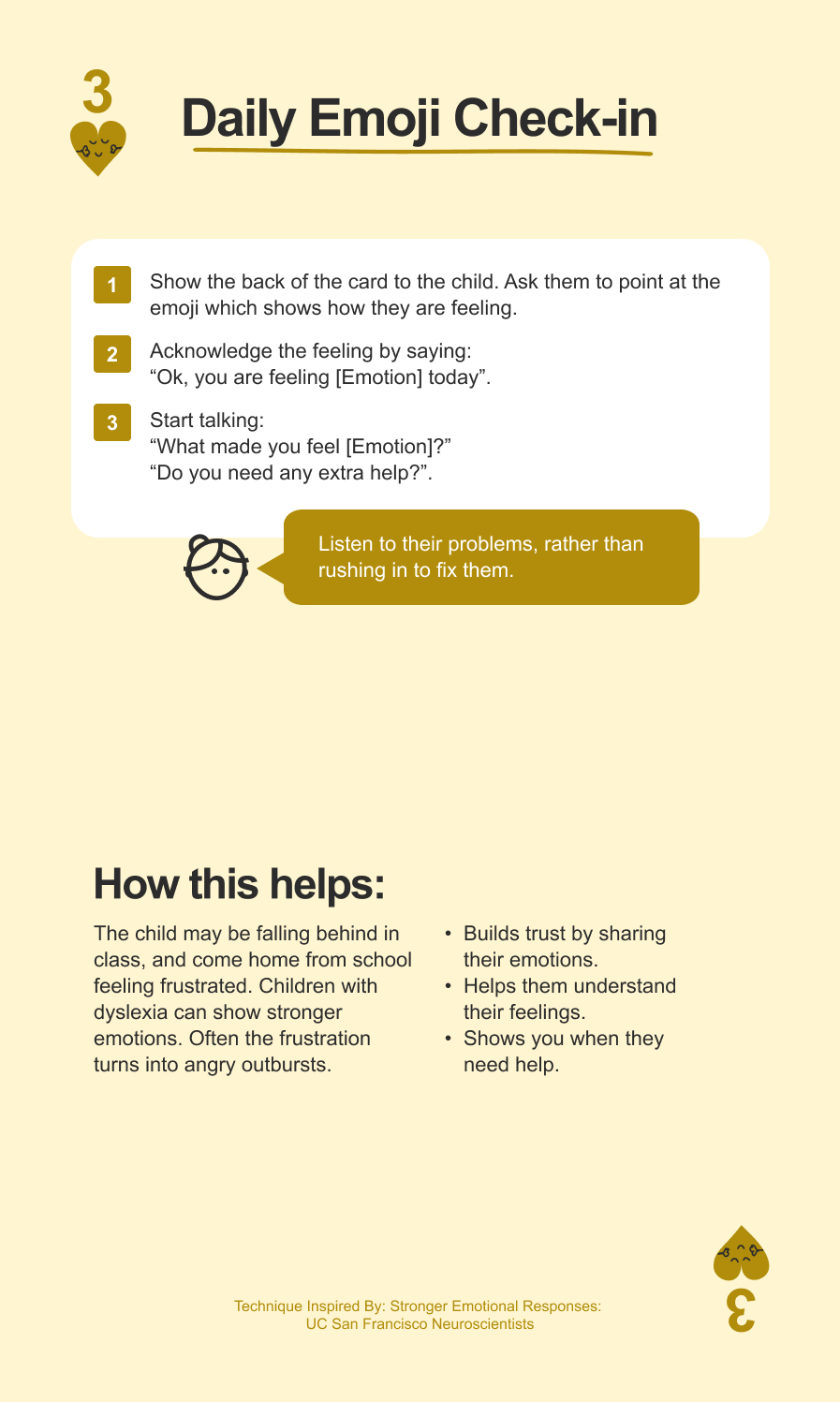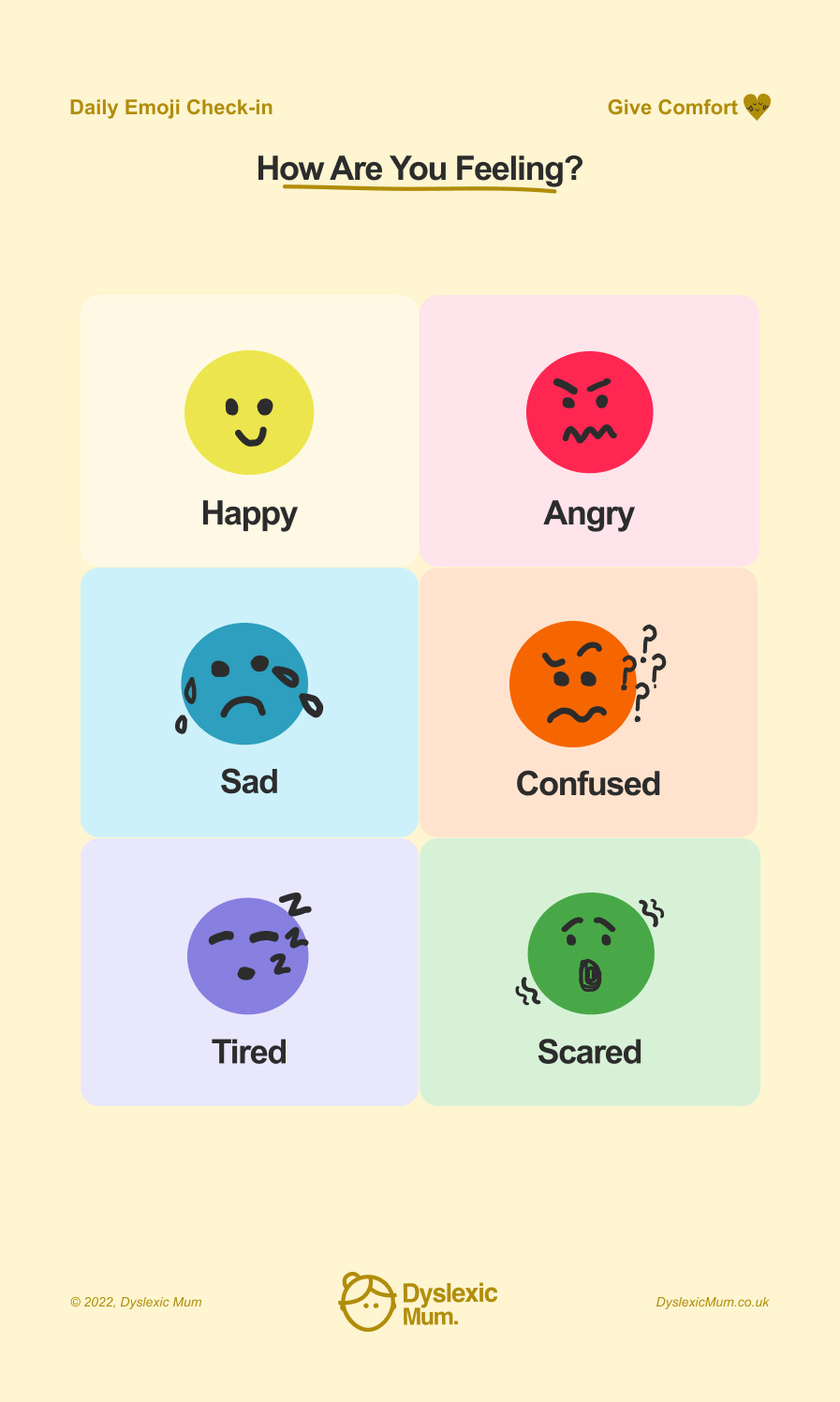Your basket is currently empty!
Children are on a rollercoaster of emotions every single day. They can go from being angry, too sad, too laughing, back too angry again! All within the space of 1 hour.
It can be exhausting for the child and for the adult to manage such behaviour. My little girl, she’s as good as gold school and then she comes home. All the emotions come pouring out, she can act very sad and angry. It can be very distressing to see her like that, as her mum I wanted to help her. The best way I could do this was by getting her to start talking about how she was feeling.
Emoji Check-in Card to Support Dyslexic Kids Emotions
The Mooki Cards contain a “Emoji Check-in” card. To help dyslexic children recognise and start to talk about their feelings. Use the card below on your phone or tablet for free!
This card is based on scientific research, on “Stronger Emotional Responses”.


Dyslexic Children Emotional Problems
- Dyslexic children show and feel their emotions more. So if they are angry they may shout, hit out. If they are sad the tears will flow, whilst excitement can appear as hyper, naughty behaviour.
- Feeling stronger emotions, they can become overwhelmed, when in stressful or new environment. Struggling to control their emotions and reacting in a negative way to a situation
- Dyslexic children may find themselves labelled as naughty, trouble-maker. This can lead to them growing up with a poor self-image, more likely to suffer from depression, anxiety
Learn more “Social and Emotional Problems linked to Dyslexia”
Help Dyslexic Child Deal with Strong Emotions
Tops Tips from Dyslexic Mum
How to Use the Card
Use the “Emoji Check-in” card every day, to help them talk about their feelings. Below are tips about how to use the card to best help the child.
- Recognise their Feelings – A dyslexic child may struggle to recognise their feelings. If they think they feel scared, ask what does feeling scared feel like? Tight chest, racing heart….
- Give Comfort – Acknowledge their feelings, show sympathy and kindness. Show you understand that it is hard to feel sad.
- Understand Why? – Talk about what has made them feel that way, did something happen at school? Show you interest in their problems.
- Help them Feel Positive – Talk to them about what would make them feel happier. Feelings are normal, don’t rush in to try and fix everything. Children change daily, sometimes they need space for issues to resolve themselves.
All the cards are available as part of a “Mooki Cards“. Complete with 56 cards and storage wallet. Perfect for using at home or in the classroom. Order your “Mooki Cards” here!
